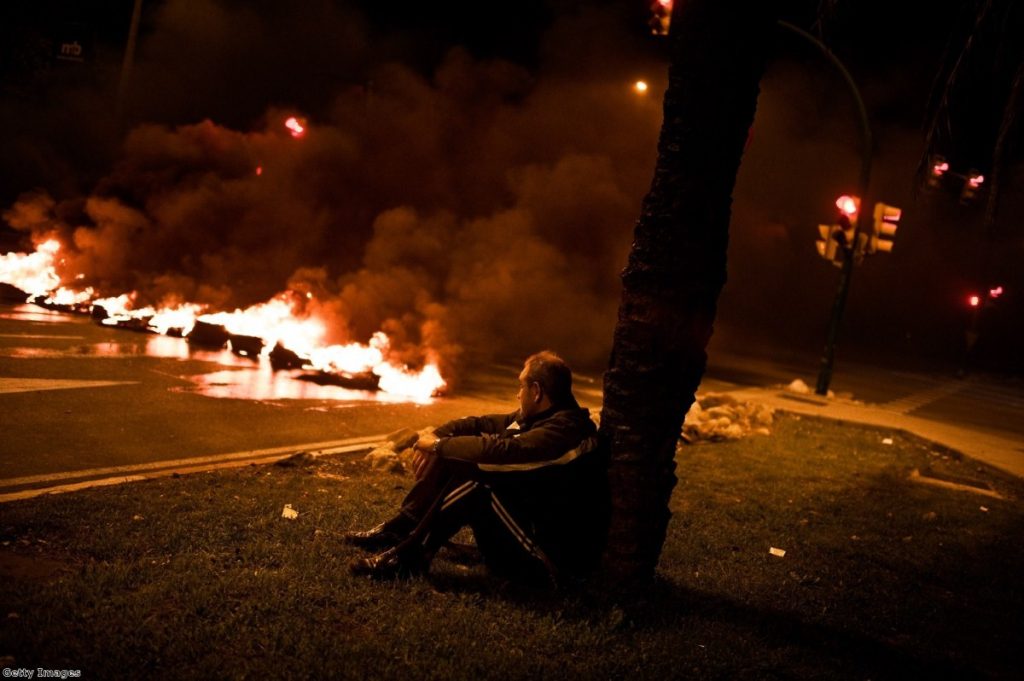Day of rage: Europe-wide protests disrupt travel across the continent
Brits planning on flying to Spain or Portugal were warned to check the schedules today, after general strikes closed both countries down.
The strikes are the most serious action in a continent-wide day of protest against austerity measures, which will touch London with a rally in Westminster tonight.
"By sowing austerity, we are reaping recession, rising poverty and social anxiety," said European Trade Union Congress (ETUC) general secretary Bernadette Ségol.
"In some countries, people's exasperation is reaching a peak. We need urgent solutions to get the economy back on track, not stifle it with austerity."


In Greece there will be a three-hour stoppage from noon, forcing Easyjet to reschedule ten flights.
In Italy there will be a four-hour stoppage. Rail workers are on strike in Belguim. In France there are demonstrations taking place in solidarity with other European workers.
But the worst disruptions are taking place in Portugal and Spain.
Around 600 flights have been cancelled to Spain, with train services down to 20%. The general strike is being largely observed.
Thirty-two people have already been arrested ahead of a mass protest in central Madrid, after they tried to stop a coach at a Madrid bus depot from leaving.
There were outbreaks of violence in other Spanish cities.
In Portugal train services are down to ten per cent, with 160 flights cancelled and protests taking place in about 40 Portuguese towns and cities.
"Workers and communities across Europe and around the globe are paying a terrible price for a crisis they did not cause," said Ruth Tanner, campaigns and policy director at War on Want.
"The government is continuing with failed economic policies which serve City bankers and tax-dodging corporations like Starbucks, Amazon and Google, rather than ordinary people."
In total, some 40 groups from 23 countries are involved in demonstrations today.
Protesters took to the streets in Portugal holding banners denouncing the International Monetary Fund (IMF), European Central Bank and the European Union (EU), a trio of institutions campaigners have dubbed 'the Troika'.
The protests come as governments across the eurozone push through cuts to public sector pensions, wages and services, in return for a financial bailout.

